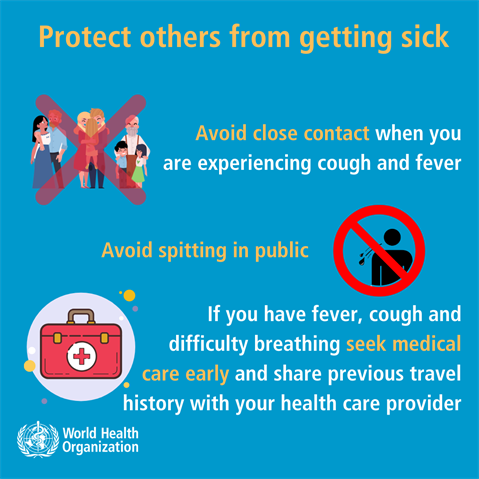The University has recently announced the cancellation of all lectures and face-to-face supervision. Khadija Aminu-Saad has some advice on how to take care of yourself during this pandemic.
As we all know, Coronavirus was declared a global emergency by the World Health Organization on the 30th January 2020. The main reason for this was the virus spreading to other countries outside of China. According to the WHO website ‘Coronaviruses (CoV) are a large family of viruses that cause illnesses ranging from the common cold to more severe diseases such as Middle East Respiratory Syndrome (MERS-CoV) and Severe Acute Respiratory Syndrome (SARS-CoV)’’.
Common signs of infection include respiratory problems, fever, cough, shortness of breath and breathing difficulties. In more severe cases, infection can cause pneumonia, Severe Acute Respiratory Syndrome, kidney failure and even death. Up until this date, the Coronavirus COVID-19 is affecting 95 countries and territories around the world and one international conveyance (the Diamond Princess cruise ship harboured in Yokohama, Japan) with around over 3,000 deaths and over 55,000 recovered. Particularly in the UK, there has been over 300 confirmed cases of Coronavirus.
A lot of countries are taking measures in order to stop the spread of the disease. Italy has shut all its schools and universities and the government has banned public gatherings to curb the spread of the virus. China has set city lockdowns, travel restrictions, extending school breaks and closing down theatres, sporting events and other public venues. Japan has also closed all schools until late March. No cases have been reported in Saudi Arabia, but the Kingdom has banned entry from foreign pilgrims. South Korea has imposed a strict self-isolation throughout the country, with fines or a potential prison sentence awaiting anyone found violating the rules.

As students, it is very important we take care of our health and also try to protect others. The UK government and the WHO has advised on:

WASHING YOUR HANDS REGURLARLY
This cannot be emphasised on more. Regularly and thoroughly clean your hands with soap and water, if no water and soap is close by then use an alcohol-based hand rub (Hand Sanitizer). It is very important to do this all the time to keep hands free from germs. For people who find it difficult to get hand sanitiser as most places are sold out quickly, Live Science provides a recipe for how to make safe hand sanitisers at home.
“Adding an emollient such as aloe vera gel or glycerine will prevent the hand sanitiser from drying out your skin and essential oils will give the mixture a pleasant smell,’’ according to the recipe shared on the website. “Based on the ratio recommended by the CDC, a homemade sanitiser made with 161ml of isopropyl alcohol would use 79 ml of emollient.’’ If made properly a handmade sanitiser is as effective as store bought.
A glove could also be used; any touching done will be made on the gloves and can easily be disposed of, keeping the persons hands free from germs.
THE USE OF FACE MASKS
The use of face masks is generally not recommended outside clinical settings for personal protection. The mask does not help someone that does not have the virus in anyway, if anything it has you constantly touching your face to adjust/ remove it, thereby transmitting whatever virus you have in your hands to your face. The mask is only advised for those who already have the virus so they don’t pass it on as easily or for those taking care of someone who has the virus.
AVOID TOUCHING EYES, NOSE AND MOUTH
Our hands are constantly touching surfaces and can easily pick up viruses. Once contaminated, a hand that then touches the eyes, nose and mouth can transfer the virus onto there and enter the body – resulting in that person becoming sick. Avoid touching your eyes, nose and mouth with hands and if you need to do so, make sure your hands are absolutely clean!
CLOSE MOUTH AND NOSE WHEN COUGHING AND SNEEZING
It is also important to practice respiratory hygiene. Cover your mouth and nose when coughing or sneezing with your elbow or a tissue. It is important not to cough or sneeze without cover because droplets are easily spread, putting people around you in danger.
Most importantly, if you have a cold or cough seek you must self isolate until these symptoms go away. If it becomes severe, seek immediate medical help by calling the NHS 111. Do not go to a GP surgery, pharmacy or hospital. The NHS will advise further.
Although no antiviral medication is recommended to treat COVID-19, treatment directed at relieving symptoms may include:
- Pain relievers
- Cough syrup or medication
- Rest
- Fluid intake
The Univeristy provides regular updates on the coronavirus through their website. A detailed ‘Action being taken by the University’ is also provided on the website. If you have chosen to travel during the coronavirus epidemic during the Easter break, it is important you inform the University through email: covid19@essex.ac.uk for safety reasons. It is also important to note that students who choose to travel to countries in Category 1 destination and Category 2 destination will have an impact on them when they return as they will have to:
- Self-isolate for two weeks, even if you don’t have any symptoms.
- Use the 111 online coronavirus service.
Thereby having an impact on their studies.
However, safety precautions to be taken while travelling include:
- Checking the travel health recommendations on the countries’ websites that you are departing from and wish to travel to.
- Taking basic precautions such as washing your hands and the advice mentioned above.
- Avoid close contact with people who are sick — particularly those with cold symptoms.
- Take steps to monitor your health every day.
- And most importantly, self-isolate even for 14 days after returning even if you feel fine.
Take care of yourself!